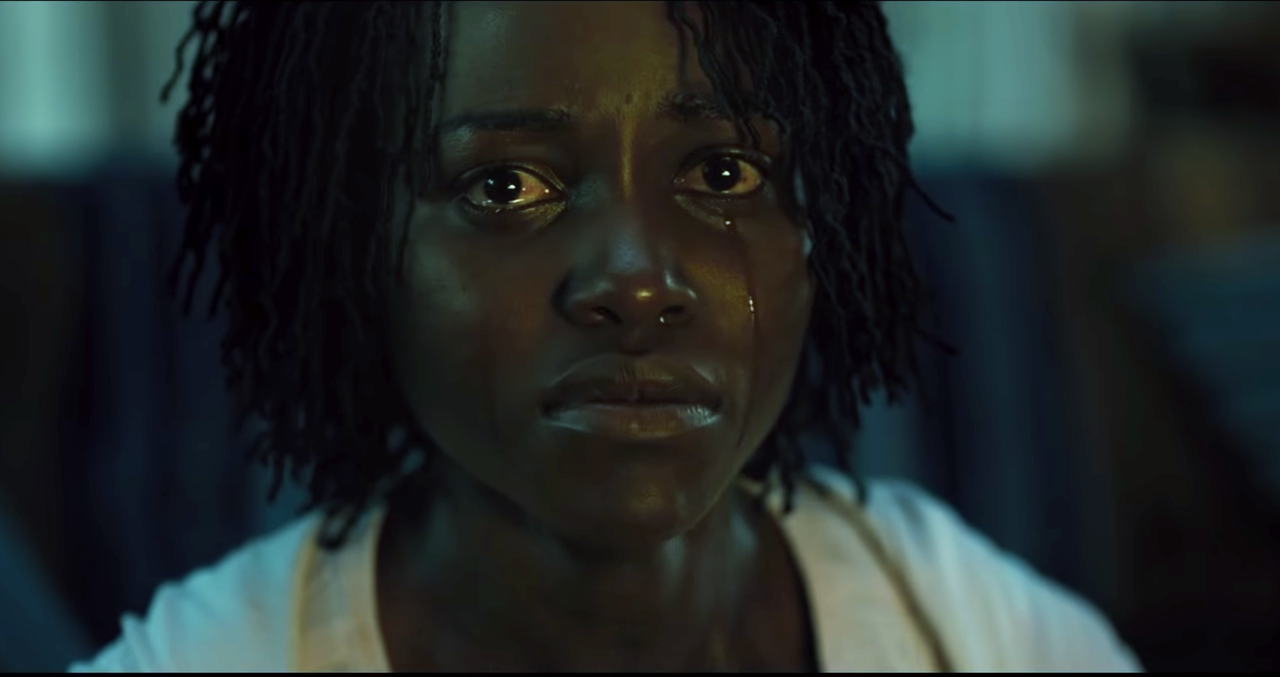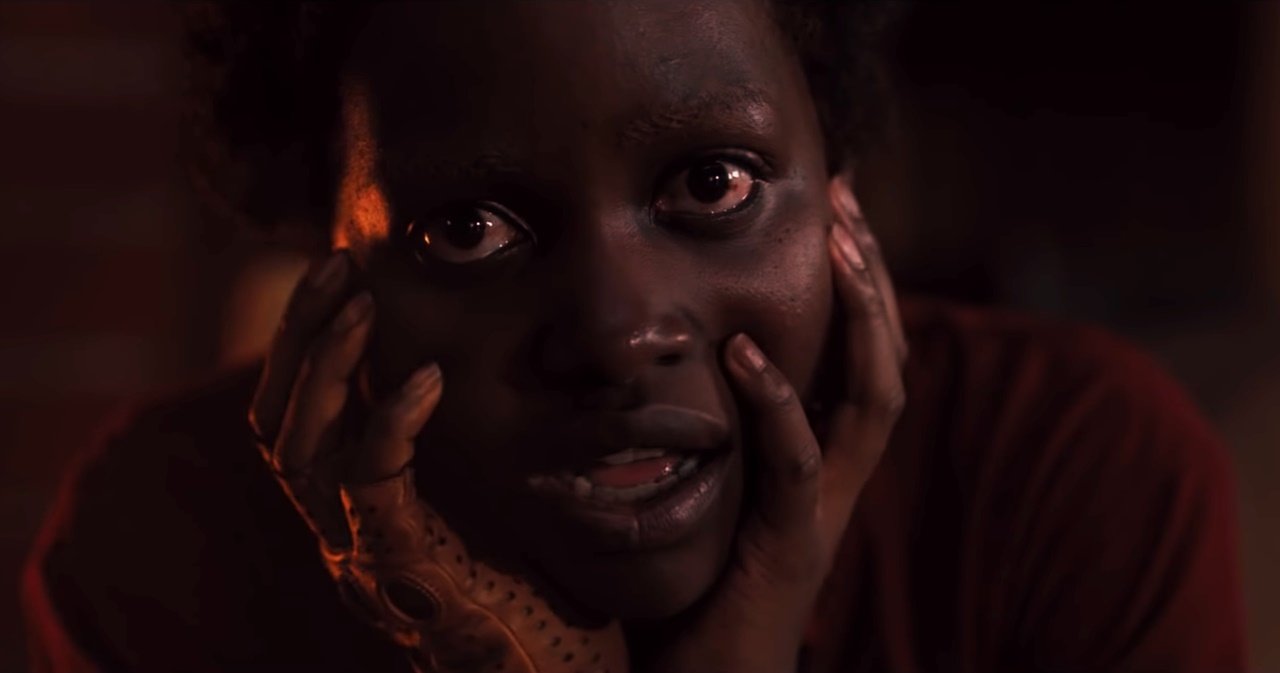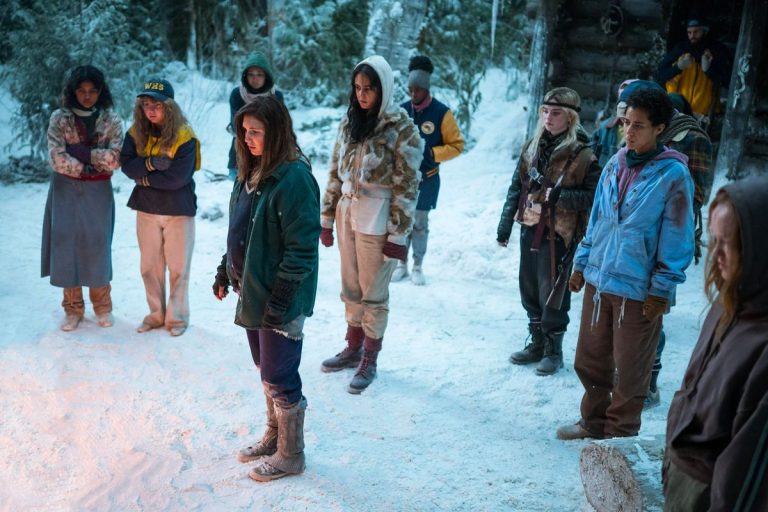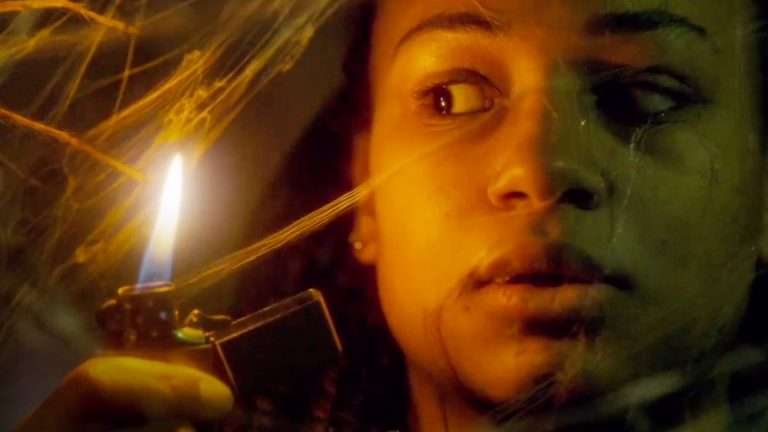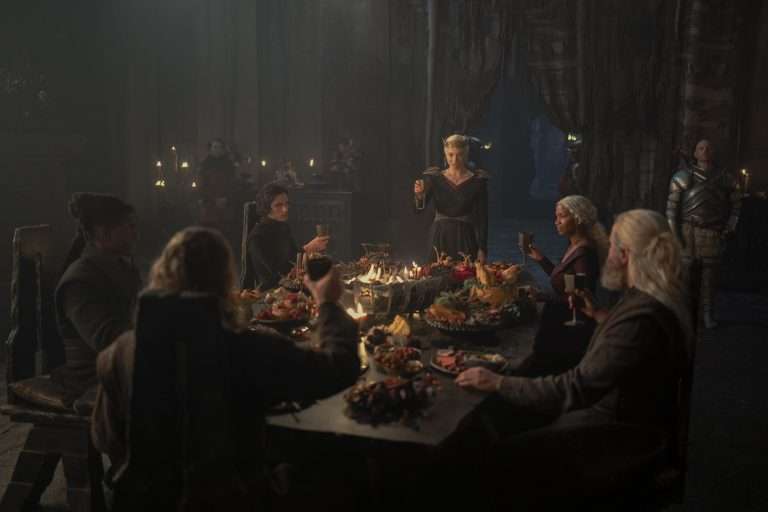Elementally following the footsteps of its predecessor Get Out, Jordan Peele’s ‘Us’ takes a step forward in conveying his vision of America’s problematic relations not only with the world outside but also the one inside it- its own people. If racism tops America’s list in implementing their colonizer instincts, capitalism is a close second and Us could be viewed as a dive into that rabbit hole (pun very much intended). Keeping aside the eerie prologue, Us begins much on the free-flowing story-telling lines similar to Get Out, following the Wilsons into their summer house for a getaway. Everything is seemingly normal. The family, the house, the dinner table jokes, until the beach is mentioned and suddenly the peace is ruptured.
*Spoilers ahead!*
The predominantly colored universe of the movie is suddenly disrupted by the inclusion of the white characters like the Jeremiah guy and the Tyler family. Gabe takes their flamboyance to the heart and it seems like the film will end up repeating the race issues seen in ‘Get out.’ This is until Jason goes to the bathroom on the beach and the frisbee lands on a perfect circle. The series of spooky events that follow strikes its final knell with the clock striking 11:11. Reminding us of the King James Version (KJV) of Jeremiah 11:11 which reads: “Therefore thus saith the Lord, Behold, I will bring evil upon them, which they shall not be able to escape; and though they shall cry unto me, I will not hearken unto them.”
On comes the ‘tethered’ upon the Wilson household, breaking into their house and narrating their forgotten history using one of the most hauntingly horrifying voice transitions. Jason immediately recognizes them as “Us”, their own selves, just more savage, primitive and soulless. From there on commences a slasher story for most of the next hour up to the point they finally realize that the ‘tethered’ (doppelgangers) are killing and uniting all across America.
Similar to Jordan Peele’s ‘Us’ – Us [2019] Review: A Hall of Mirrors
While nothing is made clear even for a better part of the movie, both the complicated narrative and shocking twist at the end of Jordan Peele’s ‘Us’ help make it work as an allegory of America’s capitalism. Much like ‘Get Out’ most of what occurs has no explanation on surface level. The metaphors are sheathed mostly in psychoanalysis. Using simple psychoanalysis the doppelganger phenomenon or the ‘tethered’ can easily be described as personified manifestations of our ‘id’ and a physical battle for survival between the ‘id’ and the ‘superego.’ However, the moment we combine this theory with America’s uber capitalist culture, we can probably decipher Peele’s code. ‘Us’ shows the brutality behind America’s prosperity and its obsessive need for otherization.
The ‘tethered’ can easily stand symbolic to our repressed selves that we conceal from civilization while we grow in the glitz and glam of all that the market has to offer. What we are eventually conditioned to forget is how our repressed self eventually tears itself away from us, forming its own identity whilst feeding on our raw and bloody desires like those ‘rabbits’ in our unconscious. We justify capitalism’s schemes through our holidays to summer beach houses working harder by the hour further alienating our life from our primal instincts. What Peele presents us is the possibility of an explosion followed by resistance by our repressed selves. First killing and then joining hands in a single cause. Also a pledge for the freedom of the self from these shackles and government schemes.
The shocking reveal towards the end makes the character of Red and Adelaide interchangeable. The twist works only if we accept our own brutality and our role in allowing the market to dehumanize and silence our desires so far so that we even forget our language. We thus become choked in expression and are pulled down to bestiality. Even though the events that ensue in the movie highlight a fight for survival, the ease with which the children, Jason and Zora, embrace their killer identity and then casually argue on their kill count to win a chance to drive the car in the face of a possible apocalypse only confirms how we are intrinsically tethered to our other. We are beings who are constantly oscillating between the master-slave dialectic in our heads, fighting to win the reign over the other.
Jordan Peel’s ‘Us’ might appear dissatisfying, even unfulfilling both in its horror and its allegory, but what Peele deals with here is a multi-layered quest for identity. One that is more personal than colour, more complex than class, most intricately linked with the emergence of ourselves, our egos, trying to capture that moment of rupture, of seepage of the ‘id’ that we are so convinced to have successfully othered and separated from ourselves from the very moment we began to communicate, to speak.
While the symbolism attempted is ambitious it is very closely linked to the reality that relies on our minds to make us un-feel desires, to become soulless, in order to deliver our performance on the market stage. The horror of ‘Us’ therefore lies not in its slasher or jump-starts but in its ability to expose the sham we so willingly participate in. The sham where we are destroying everything our identity is built around, joining hands together to end ‘us’ (the defenders of the market) before we end them.

